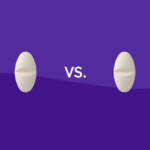How does Ambien work in the body?
Ambien, or zolpidem, is a medication primarily used to treat insomnia. It belongs to a class of drugs known as sedative-hypnotics, and its mechanism of action involves affecting certain chemicals in the brain. The active ingredient in Ambien binds to a specific receptor in the brain called gamma-aminobutyric acid (GABA). GABA is a neurotransmitter that inhibits brain activity, promoting a calming effect.
By enhancing the effects of GABA, Ambien helps to induce and maintain sleep. It specifically targets the GABA-A receptors, which are responsible for slowing down brain activity. This calming effect helps people with insomnia fall asleep faster and experience a more prolonged and restful sleep.
Check Out:
What are the different forms and dosages of Ambien available?
Ambien comes in different forms and dosages, allowing healthcare providers to tailor treatment to individual needs. The two primary forms of Ambien are:
1. Ambien Immediate-Release Tablets:
- Available in strengths of 5 mg and 10 mg.
- The immediate-release formulation is designed to help individuals fall asleep quickly.
- It is usually taken on an empty stomach just before bedtime.
2. Ambien Extended-Release Tablets (Ambien CR):
- Available in strengths of 6.25 mg and 12.5 mg.
- The extended-release formulation is designed to provide both immediate and sustained release of the medication.
- It helps individuals fall asleep and stay asleep throughout the night.
It’s crucial to follow the prescribed dosage and administration guidelines provided by a healthcare professional. The appropriate dosage may vary depending on factors such as age, overall health, and the severity of insomnia.
Primary Uses of Ambien in Treating Insomnia
Insomnia is a common sleep disorder characterized by difficulty falling asleep, staying asleep, or both. Ambien is widely prescribed to address insomnia and has proven effective in promoting sleep onset and maintenance. The primary uses of Ambien include:
1. Initiating Sleep:
- Ambien is known for its quick onset of action, making it effective in helping individuals fall asleep faster.
- The medication’s mechanism of action, targeting GABA receptors, induces a calming effect, promoting a smooth transition into sleep.
2. Maintaining Sleep:
- Ambien’s extended-release formulation (Ambien CR) is specifically designed to help individuals stay asleep throughout the night.
- By providing a controlled release of the medication, Ambien CR helps prevent nighttime awakenings, contributing to a more restful sleep.
3. Improving Sleep Quality:
- Ambien not only addresses the quantity of sleep but also contributes to the overall quality of sleep.
- Patients often report experiencing a more refreshing and restorative sleep cycle when using Ambien.
Off-Label Uses and Considerations
In addition to its primary use in treating insomnia, Ambien is sometimes prescribed off-label for other conditions. Off-label use refers to the practice of prescribing a medication for purposes other than those approved by regulatory agencies. Some off-label uses and considerations for Ambien include:
1. Anxiety Disorders:
- In certain cases, healthcare providers may prescribe Ambien off-label to manage symptoms of anxiety disorders.
- The calming effect of Ambien may help alleviate acute anxiety episodes.
2. Post-Traumatic Stress Disorder (PTSD):
- Ambien may be considered off-label in the treatment of insomnia associated with PTSD.
- Improved sleep can contribute to better overall mental health outcomes for individuals with PTSD.
3. Jet Lag:
- Some individuals use Ambien to help adjust to new time zones and mitigate the effects of jet lag.
- It can aid in resetting the sleep-wake cycle when traveling across multiple time zones.
It’s essential to note that off-label use should only occur under the guidance and supervision of a healthcare professional. Individual responses to medications can vary, and the potential benefits and risks should be carefully evaluated.
In conclusion, Ambien serves as a valuable tool in the management of insomnia, offering quick onset and sustained release options to address various sleep-related challenges. While its primary use is well-established in treating insomnia, off-label uses may be considered based on individual patient needs and circumstances, always under the supervision of a qualified healthcare provider.






